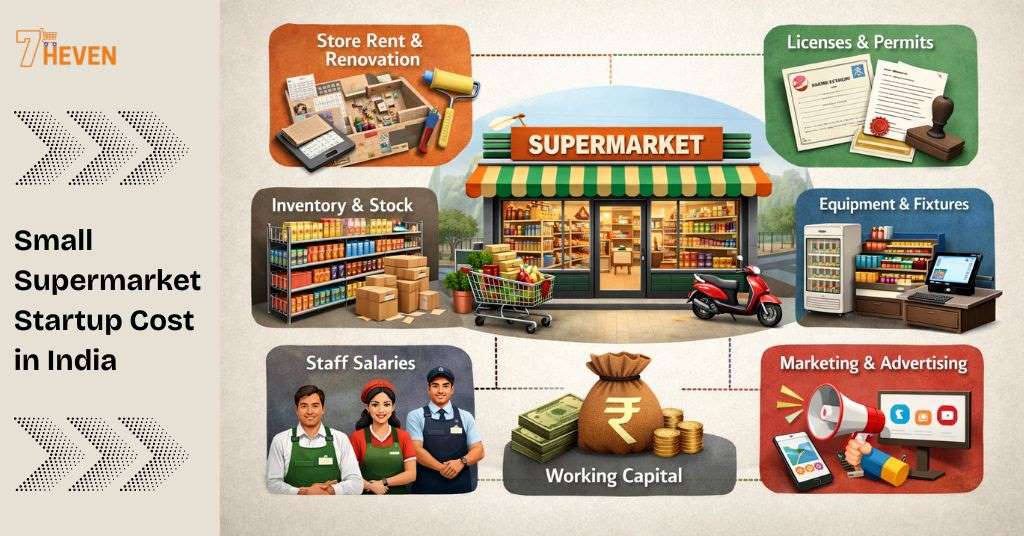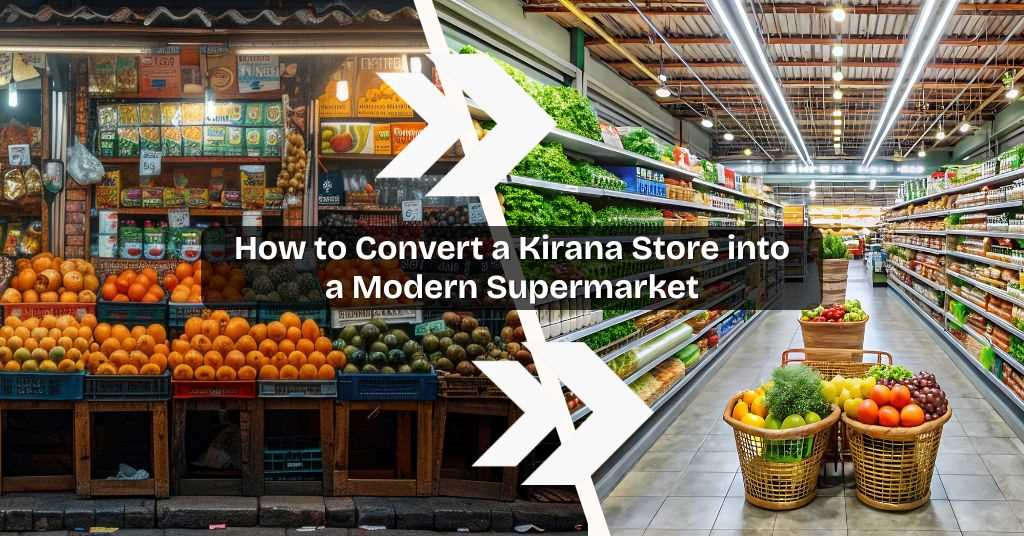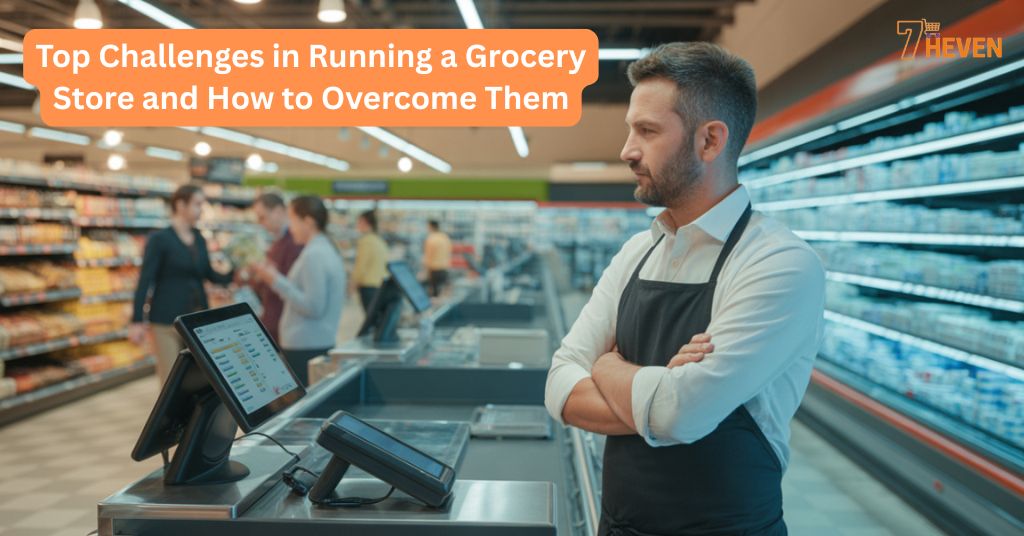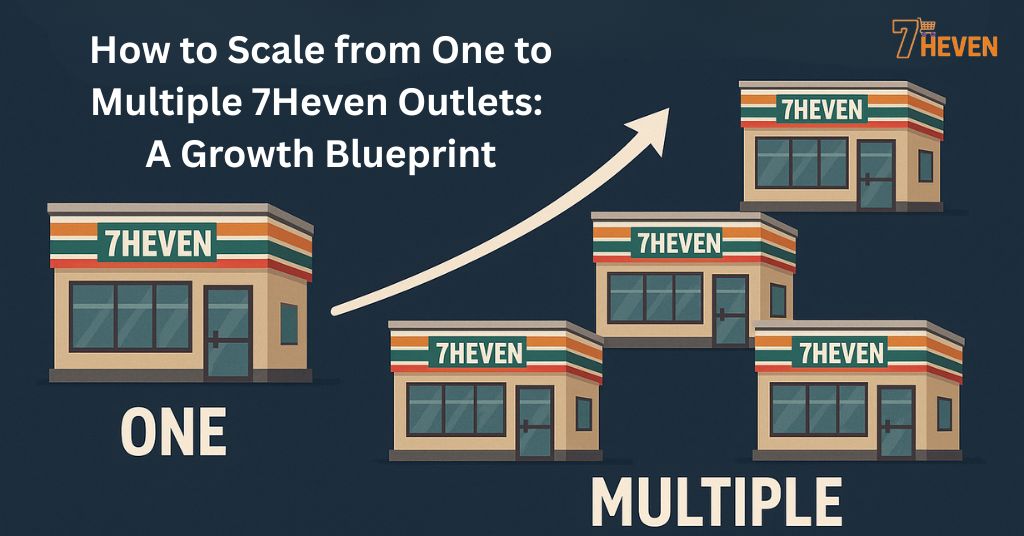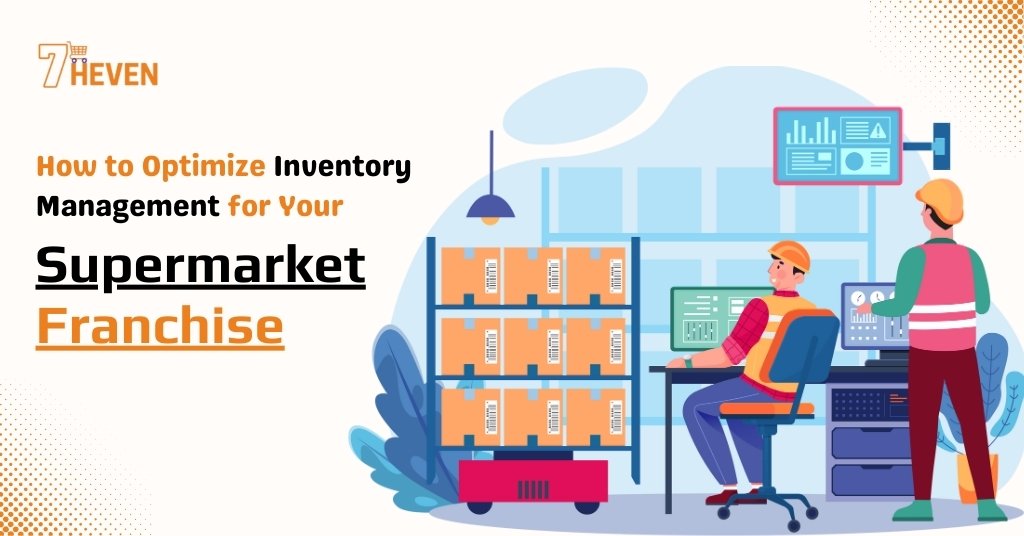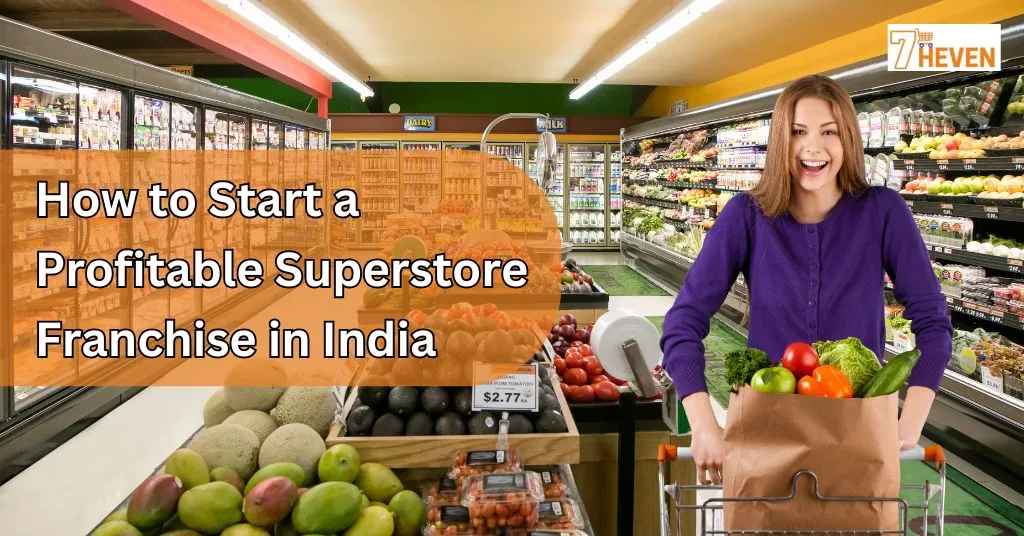Can You Run a Supermarket as a Passive Income Business? (Reality Explained)
Nowadays, several people want to build a business that regularly generates income without even needing full-time involvement. This is exactly why the idea of a passive income business has become very popular. Since supermarkets deal with daily essential products and respond to customer demand, most of the investors ask an important question: Can a supermarket be run as a passive income business? If you are still evaluating whether retail is the right fit for your goals, understanding the long-term or short-term potential of owning a supermarket as a business opportunity can help you make a more informed decision. The simple answer is that a supermarket can’t be completely passive. However, it can become semi-passive with the right systems, planning, along with management structure. In this guide, we’ll explore how exactly the supermarket business works, how much owner involvement is actually needed, what challenges exist, and how structured systems can reduce daily workload. What Does Passive Income Mean in a Business? Passive income means earning money with minimal effort on a daily basis after the initial setup. If we talk about examples, then they can include rental income, investments, or even automated online businesses. Businesses generally fall into three categories: Active business — Requires full daily involvement Semi-passive business — Requires monitoring but not constant presence Fully passive business — Runs automatically with minimal supervision A supermarket business falls in the semi-passive category, not fully passive. It requires operational systems, staff management, and periodic monitoring to run smoothly. How the Supermarket Business Works in Daily Operations To understand whether a supermarket can be passive, it is important to understand how it operates daily. A supermarket involves multiple ongoing activities such as: Inventory management and stock replenishment Supplier coordination and product ordering Staff supervision and customer service Billing operations and cash flow tracking Product display and store maintenance Managing expiry and wastage Since these tasks directly affect sales and profit, supermarkets require continuous attention. Without supervision, small operational issues can grow into bigger problems. This is why the supermarket business is not a “set and forget” model. Can a Supermarket Run Without Daily Owner Presence? Yes, in some situations, a supermarket can operate without the owner being present every day. However, this is possible only when strong systems and management processes are in place. A supermarket may run with limited owner involvement if: Trained staff manage operations efficiently A reliable store manager handles daily supervision Inventory and billing systems are automated Clear standard operating procedures are followed The customer base is stable and predictable Even in such cases, the owner must monitor performance regularly, review reports, and make strategic decisions. When a Supermarket Can Become a Semi-Passive Income Business A supermarket can gradually become semi-passive when it reaches a stable stage. This usually happens after proper setup, customer trust building, and operational consistency. Conditions that help reduce owner involvement: Strong Hiring and Staff Training Well-trained staff reduces the need for constant supervision. Store Manager or Supervisor A responsible manager handles daily store operations. Automated POS and Inventory Systems Technology tracks sales, stock levels, and reports. Clear Standard Operating Procedures (SOPs) Defined processes ensure consistent operations. Regular Monitoring System Sales and expenses are reviewed periodically. Stable Customer Flow Regular customers create predictable sales. When these elements are in place, the owner’s role becomes more strategic than operational. Challenges of Running a Fully Passive Supermarket Trying to run a supermarket without proper supervision can create serious problems. Retail businesses depend heavily on operational control. Common risks include: Inventory mismanagement – stock shortages or excess inventory Billing and cash handling errors – revenue loss Employee dependency risk – inconsistent service Customer experience decline – reduced repeat visits Expiry and wastage losses – reduced profit margins Operational inefficiency – higher expenses To avoid these operational risks, it is important to understand the common supermarket franchise mistakes to avoid before investing. Because of these risks, complete passive ownership is not practical for most supermarkets. How Much Time Does a Supermarket Owner Need to Give? The time commitment changes as the store grows and stabilizes. Business Stage Owner Involvement First 3–6 months High involvement in setup and learning Growth stage Moderate involvement and monitoring Stable store Lower involvement but regular supervision In the beginning, the owner must understand customer demand, manage staff, and stabilize operations. Once systems are established, the daily workload reduces significantly. Before starting, it is also important to understand the estimated supermarket costs in India to plan your investment properly and avoid financial pressure during the early stage. Active vs Semi-Passive Supermarket Ownership Factor Active Ownership Semi-Passive Ownership Daily involvement High Moderate Operational control Full Shared with staff Risk level Lower Higher if systems weak Profit stability Higher Depends on management Decision speed Faster Slower if delegated This comparison helps investors choose the right approach based on their goals and availability. Who Can Consider a Supermarket as a Semi-Passive Business? A supermarket is more likely to work as a semi-passive income business for certain types of investors. It suits: Experienced business owners Investors with management systems Family-run business setups Franchise-supported store owners People who can monitor performance regularly For first-time entrepreneurs without retail knowledge, full passive ownership may be risky. Understanding the essential skills entrepreneurs need to run a supermarket can significantly improve long-term success. How Systems and Structured Support Make Management Easier Running a supermarket becomes easier when structured processes are used. Technology, training, and operational systems reduce dependency on manual control. Important support systems include: Standard store layout planning Inventory tracking technology Supplier management processes Staff training systems Performance monitoring tools With proper structure, the supermarket becomes more predictable and easier to manage. How 7Heven Supports Structured Supermarket Operations For all those who want to start a supermarket business but are concerned about daily management, structured support can truly make a major difference. 7Heven provides guidance and operational support in order to help store owners run their supermarkets even more efficiently. 7Heven helps you with location analysis, store setup planning, inventory management
Can You Run a Supermarket as a Passive Income Business? (Reality Explained) Read More »




